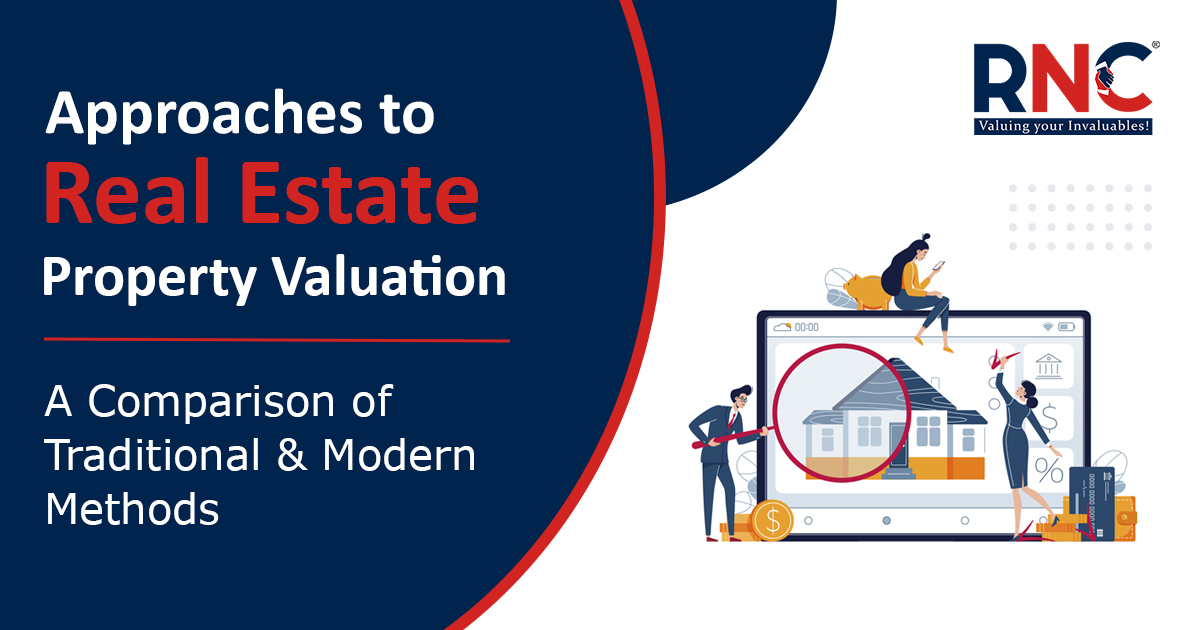
Real estate property valuation is the process of determining the market value of a property. It is essential to investment decision-making and helps investors make informed decisions. Investors can use the property valuation to assess the risk and return of their investment. In this article, we will analyse the importance of real estate property valuation in investment decision-making and its impact on risk and return.
2025 Property Market Trends
The Indian real estate sector in 2025 continues to show robust growth, especially in residential housing where demand is driven by rising disposable incomes, urban migration, and government incentives.
-
Commercial Real Estate: Office spaces and co-working hubs remain attractive for institutional investors, though return cycles are longer.
-
Residential Sector: Affordable housing and premium apartments in metro cities continue to gain traction.
-
RERA Compliance: Stricter regulations have improved transparency, boosting investor confidence.
-
REITs Performance: Real Estate Investment Trusts (REITs) are emerging as a preferred option for investors looking for stable, dividend-based returns without directly owning property.
👉 Takeaway: Investors who consider both compliance and market demand are better positioned to secure higher ROI.
Case Study: Investment Failure Due to Poor Valuation
A first-time investor purchased a commercial property in Bengaluru at 30% above its fair market value because no independent valuation was conducted.
-
Within two years, the resale market dipped due to oversupply.
-
The investor faced a 20% capital loss plus reduced rental income compared to projections.
Lesson: Accurate property valuation is not optional—it protects against overpayment and future resale risks.
ROI Calculator / Infographic
One of the most effective ways to judge the success of a real estate investment is through Return on Investment (ROI).
Formula:
ROI (%) = (Rental Income + Capital Appreciation – Costs) ÷ Investment × 100
Example:
-
Rental Income: ₹5,00,000 per year
-
Capital Appreciation: ₹10,00,000
-
Costs (maintenance, taxes, etc.): ₹2,00,000
-
Investment: ₹50,00,000
👉 ROI = (5,00,000 + 10,00,000 – 2,00,000) ÷ 50,00,000 × 100 = 26%
Why Real Estate Property Valuation is Important
Real estate is a valuable asset, and its value can fluctuate depending on various factors such as location, market trends, and demand. Therefore, property valuation is crucial for investors to understand the current value of their investment and its potential future value. Property valuation helps investors to:
Make Informed Decisions
Property valuation provides investors with accurate information on the property’s value, which is essential when making investment decisions. Investors can use property valuation reports to compare the value of different properties, assess their investment potential, and determine whether it is worth investing in them.
Minimise Risks
Real estate investments come with risks, and property valuation helps investors to identify and minimize them. For instance, a property with structural defects or requiring significant repairs may impact its value and potential return. Property valuation can help investors to identify such issues and make informed decisions based on the information provided.
Also Read: Comprehensive Risk Inspection that Uncovers & Manages Risk at Every Business Stage
Determine the Right Price
When buying or selling a property, it is essential to determine the right price. Property valuation helps investors determine the property’s fair market value and ensures that they get a fair deal. It also helps investors to negotiate with buyers or sellers and arrive at a reasonable price that benefits both parties.
Impact of Property Valuation on Risk and Return
Real estate investment is all about balancing risk and return. The higher the risk, the higher the potential return, and vice versa. Property valuation plays a crucial role in assessing the risk and return of a real estate investment. Here are some ways in which property valuation impacts risk and return.
Determines the Market Value
Property valuation determines the market value of a property, which is essential in assessing the potential return on investment. If the property’s market value is high, the potential return on investment is also high. Therefore, property valuation helps investors determine the property’s fair value and potential return.
Identifies Risks
Property valuation identifies risks associated with the property, which may impact its potential return. For instance, if a property has structural defects, it may require significant repairs that may increase the investment cost, reduce the potential return, and increase the risk. Therefore, property valuation helps investors to identify such risks and make informed decisions based on the information provided.
Assists in Negotiations
Negotiations play a significant role in determining the final price when buying or selling a property. Property valuation helps investors negotiate with buyers or sellers based on the property’s accurate value. It also ensures that both parties get a fair deal and reduces the risk of losing money.
Final Words
Real estate property valuation is essential in investment decision-making. It provides investors with accurate information on the value of their investment, identifies risks, and helps them to make informed decisions. Property valuation impacts risk and return by determining the market value, identifying risks, and assisting in negotiations. Therefore, investors should seek the services of an experienced and trusted valuation firm like RNC to get reliable property valuation reports that can accurately guide their investment decisions.
FAQs:
1. Why is property valuation important in investment decisions?
Property valuation ensures investors know the true worth of an asset before purchase. It prevents overpayment and helps in making informed investment choices.
2. How does valuation reduce investment risks?
Accurate valuation identifies hidden costs, market trends, and potential risks, reducing the chances of financial losses in the future.
3. What methods are used in real estate valuation?
The most common methods include the sales comparison approach, income capitalization method, and cost approach—each suited for different property types.
4. Can property valuation help in securing loans?
Yes. Banks and financial institutions require property valuations to assess loan eligibility and decide the amount of funding they can offer.
5. How often should investors update property valuations?
Ideally, property valuations should be updated every 1–2 years, or whenever investors plan to refinance, sell, or purchase additional properties.
